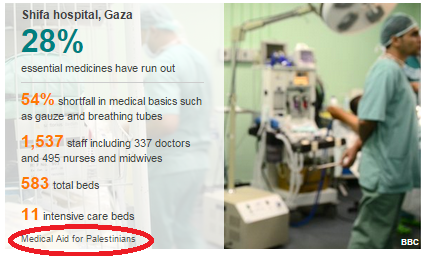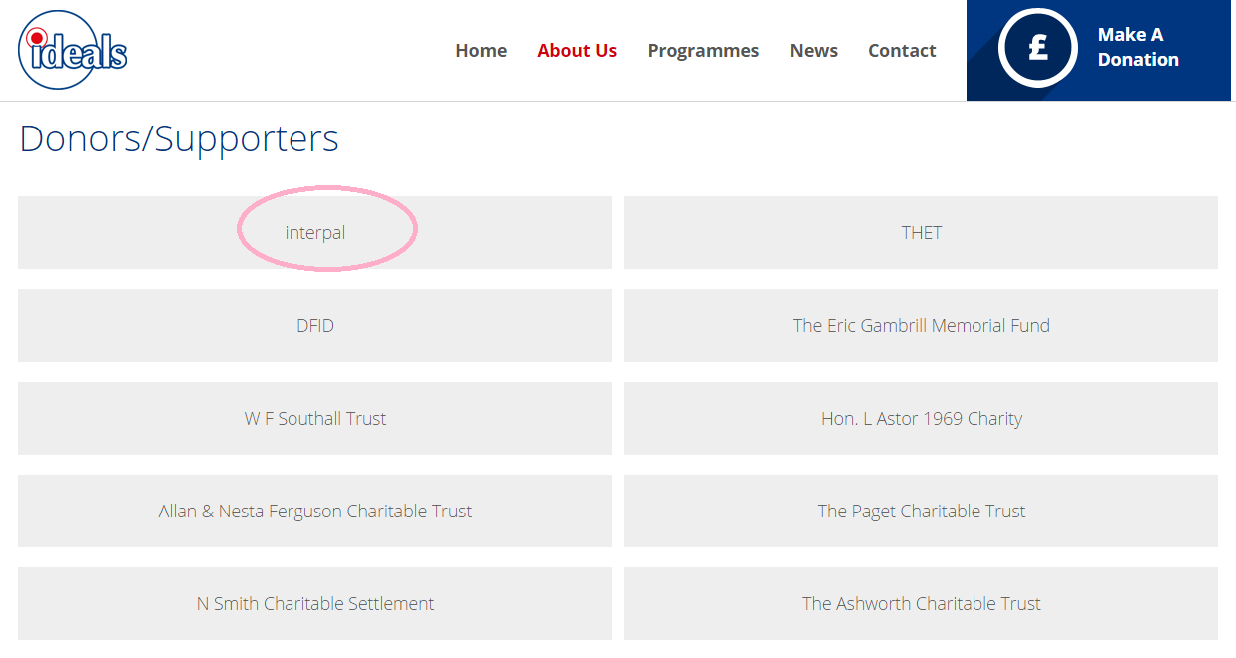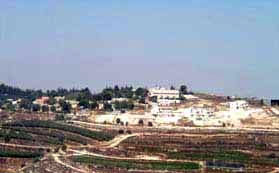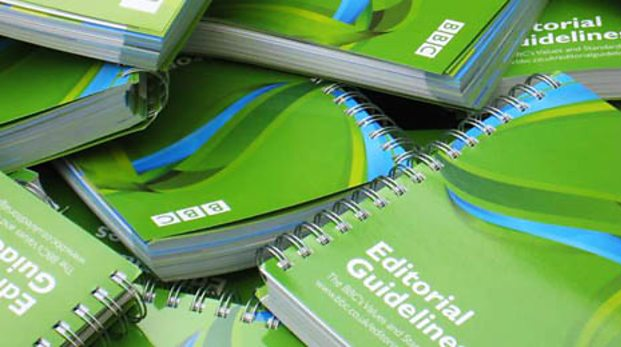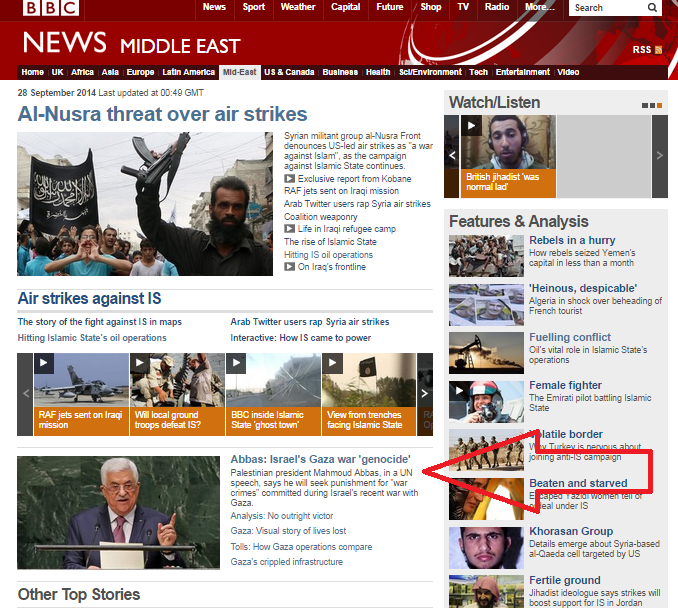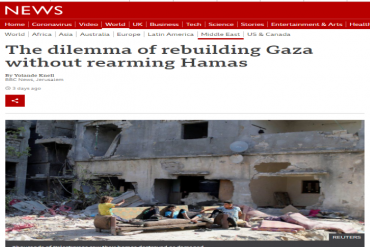The BBC’s Julia Macfarlane recently showcased a trip to the Gaza Strip by four British surgeons in a series of reports across a variety of BBC platforms.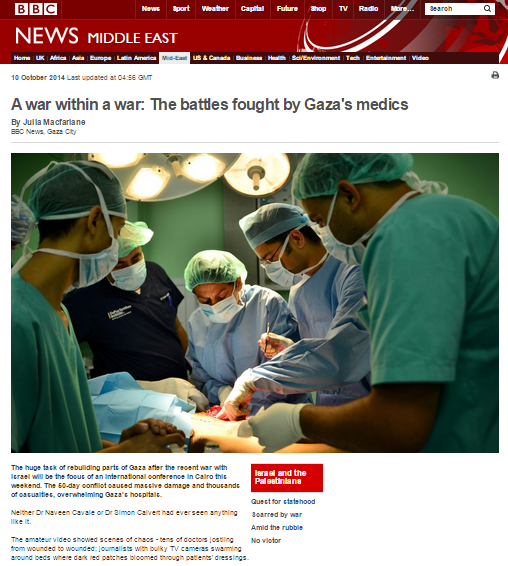
On October 10th a feature titled “A war within a war: The battles fought by Gaza’s medics” appeared on the BBC News website where it remained for five consecutive days. A filmed version of the report – which also appeared on BBC television news – was posted on the same webpage on the same day under the title “Gaza conflict: UK surgeons help treat wounded“. On October 11th the BBC World Service radio programme ‘Newshour’, presented by Julian Marshall, included an audio version of Macfarlane’s report – available from 12:25 here.
The subject of the organizations behind the doctors’ trip to the Gaza Strip is not raised at all in the radio version of the report. In the televised version, one of the doctors says:
“I think myself as part of a charity like Ideals and MAP can actually now start setting something to try to sort these people out.”
Very few viewers of course are likely to be aware of the fact that the acronym MAP is in fact Medical Aid for Palestinians. The written version of Macfarlane’s report states:
“The surgeons belong to the charity Ideals, and were sent to Gaza by Medical Aid for Palestinians to visit the main hospitals there to carry out assessments and to perform post-traumatic, reconstructive surgeries.”
The same written feature also includes the following graphic displaying information provided by MAP.
Like the rest of the content in all of Macfarlane’s context-free reports, this graphic makes no attempt to inform BBC audiences of the real reasons behind the information presented. There is of course nothing novel about that: from the very first day of the seven-week conflict the BBC misled its audiences by stating or implying that shortages of medical equipment in the Gaza Strip are a consequence of border restrictions imposed by Israel. On no occasion has any effort been made to clarify to BBC audiences that the permanent shortage of drugs and medical supplies in the Gaza Strip is the result of ongoing disputes between Hamas and the Palestinian Authority and that Israel does not place any restrictions whatsoever on the entry of such items into the Strip.
Notably, the same context-free theme was also promoted by the BBC during Operation Pillar of Defence in 2012, including in an interview with the then WHO representative Tony Laurance who has since become the chief executive of MAP.
All of these reports by Julia Macfarlane were obviously made with the collaboration of the charities involved in organizing and funding the doctors’ trip.
The charity ‘Ideals‘ states on its website that its ‘donors/supporters’ include Interpal – a UK charity with known connections to Hamas which is designated a terrorist entity by the United States and was the subject of a ‘Panorama‘ programme in 2006.
One of Interpal’s associates is Dr Paola Manduca who, together with MAP founder and honorary patron Dr Swee Chai Ang, was at the centre of a recent controversy caused by their publication (with others) of a highly defamatory and politicized letter in The Lancet. That controversy further escalated after the discovery of their promotion of antisemitic material.
According to Julia Macfarlane, the UK doctors’ trip was jointly funded by the British tax-payer (via DFID). The MAP website states that more such DFID-funded missions are planned in the future and that “… MAP will continue to work with the Ministry of Health in Gaza to identify key areas of need and offer specialised medical interventions”.
Both the issue of public funding and the collaboration, via MAP, with the Hamas-run Gaza Health Ministry should have made the extremist links of the charities showcased by the BBC even more of a matter of public interest, but yet no effort was made whatsoever to inform audiences of those links or MAP’s political agenda in any of Macfarlane’s reports.

